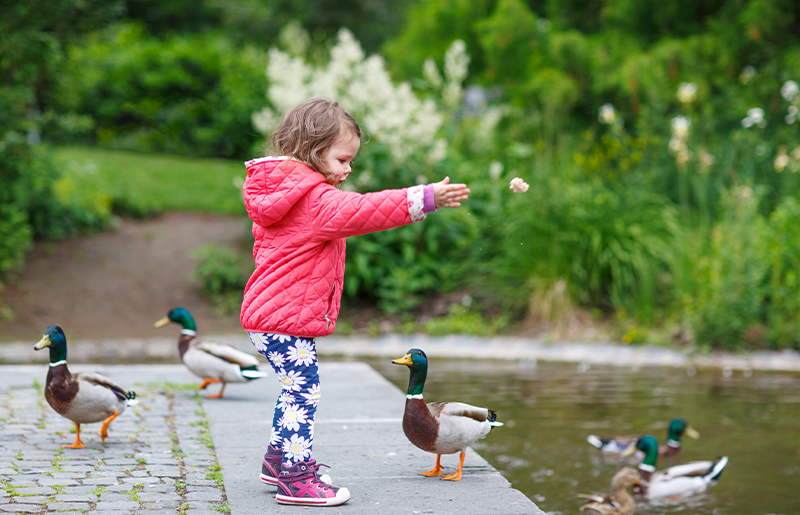
The Hidden Dangers of Feeding Ducks: Why Bread Isn't the Best Choice
For many people, feeding ducks at local ponds, lakes or parks seems like a harmless and enjoyable activity. However, what may seem like a simple act of kindness can have detrimental effects on the health of these beloved waterfowl and the ecosystems they inhabit.
Feeding ducks bread, a common practice among park-goers, can actually be harmful to their digestive systems. While bread may seem like a convenient and inexpensive option, it lacks the essential nutrients ducks need to thrive. Additionally, the high carbohydrate content in bread can lead to malnutrition and obesity in ducks, causing a range of health issues such as angel wing, a condition where the wings of young ducks grow abnormally due to imbalanced nutrition.
Moreover, uneaten bread contributes to water pollution, as it decays and releases harmful chemicals into the water. This can lead to algae blooms and other water quality problems, negatively impacting not only the ducks but also other aquatic life and the overall health of the ecosystem.
To ensure the well-being of ducks and the ecosystems they inhabit, it's important to avoid feeding them bread and instead opt for safer and healthier alternatives. Some suitable foods for ducks include:
-
Grains: Whole grains such as oats, barley, or corn can provide ducks with essential nutrients without the harmful effects of bread.
-
Vegetables: Ducks enjoy a variety of vegetables, including lettuce, spinach, peas, and chopped carrots. These options are nutritious and easy for ducks to digest.
-
Fruits: Ducks can also safely consume fruits like sliced grapes, berries, and apples (without seeds). These provide vitamins and minerals while satisfying their taste buds.
-
Duck Feed: Commercially available duck feed is specially formulated to meet the nutritional needs of ducks. It's a convenient and balanced option for those who want to provide supplementary food for ducks responsibly.
By choosing alternative foods that are nutritious and safe for ducks, we can help protect their health and the health of the environments they call home. Additionally, refraining from feeding ducks altogether encourages them to forage for natural foods, which promotes their natural behaviors and reduces dependency on human assistance.
Next time you visit a pond or park inhabited by ducks, remember to leave the bread at home and opt for healthier options. For more helpful tips on interacting with ducks and geese, visit this Texas Humane Network website. Together, we can ensure the well-being of these delightful waterfowl and preserve the beauty of their habitats for generations to come.
By Tiffany Krenek, My Neighborhood News ![]()
 |
Tiffany Krenek has been on the My Neighborhood News team since August 2021. She is passionate about curating and sharing content that enriches the lives of our readers in a personal, meaningful way. A loving mother and wife, Tiffany and her family live in the West Houston/Cypress region. |


